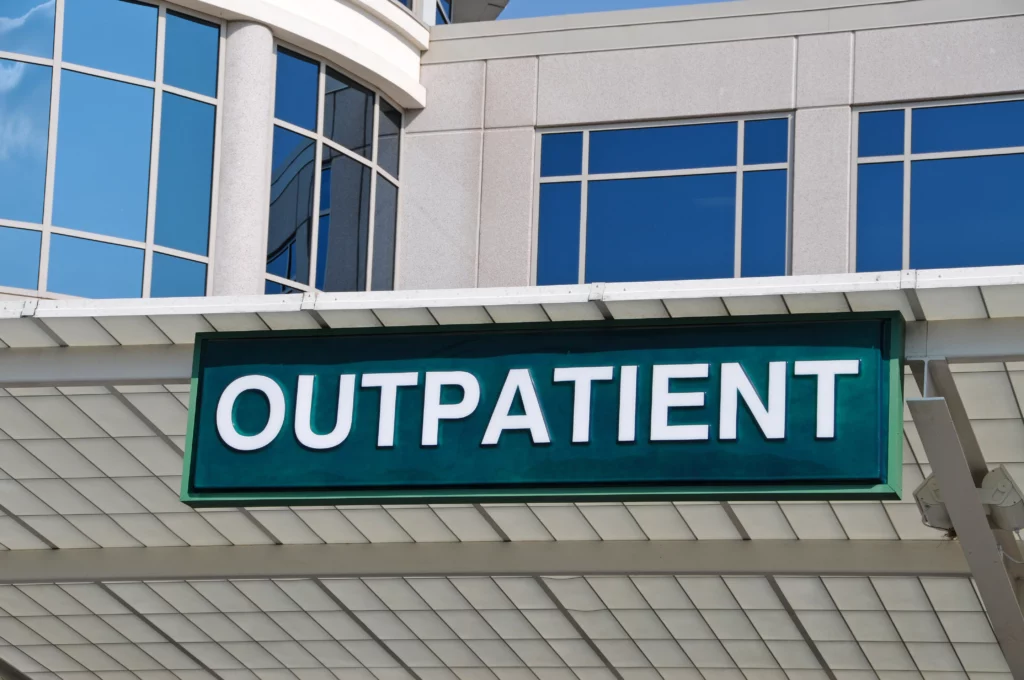Finding the right outpatient treatment program is a key step in overcoming substance abuse. Outpatient substance abuse treatments provide flexible, structured support tailored to individual needs, allowing for the maintenance of daily responsibilities. Learn the essential steps to locate the most effective outpatient substance abuse treatment near you, ensuring you have the necessary tools and support for successful recovery.
Understanding Outpatient Substance Abuse Treatment
What is Outpatient Substance Abuse Treatment?
Outpatient substance abuse treatment is a type of program designed for individuals who are struggling with drug or alcohol addiction but wish to continue living at home.
However, some outpatient treatment programs offer supportive housing for those who need it.
This program involves regular visits to a treatment center for counseling, group therapy, and sometimes medical consultations.
The main advantage of outpatient programs is their flexibility, which allows individuals to maintain their daily work, school, or family commitments while receiving treatment.
Outpatient treatment is generally recommended for those with a strong support system at home and less severe addiction.
Differences Between Outpatient and Inpatient Treatment
The main difference between outpatient and inpatient substance abuse treatment is the level of care and environment provided.
Inpatient treatment programs require individuals to stay at a treatment facility offering a structured environment, constant medical supervision, and intensive therapies.
This type of care is especially beneficial for those with severe addictions or who need a controlled environment to overcome addictive behaviors.
The sessions in outpatient treatment are less frequent and intensive than in inpatient care, focusing on counseling, education, and skill-building to manage addiction while living an everyday life.
This approach is often more suitable for individuals with a stable living situation and a strong support network.
Outpatient Treatment vs. Inpatient Treatment:
| Outpatient Treatment: | Inpatient Treatment: |
|---|---|
| Allows living at home | Requires staying at the facility |
| Flexible schedule, maintaining daily activities | Structured environment with intensive care |
| Regular visits to a treatment center | 24/7 medical supervision and care |
| Suitable for less severe addictions | Ideal for severe addictions or dual diagnosis |
| Focus on counseling, education, and skill-building | Intensive therapies and round-the-clock support |
| Requires a strong support system at home | Controlled environment, away from daily triggers |
Types of Outpatient Programs
Intensive Outpatient Program (IOP)
Intensive Outpatient Programs, commonly known as IOPs, provide a structured and comprehensive treatment approach while allowing participants to live at home.
These programs require a significant time commitment, often involving multiple weekly sessions lasting several hours.
IOPs are designed for individuals who need more support than standard outpatient care provides but who do not require 24/7 supervision.
They focus on intensive therapy, including group and individual counseling, and may also offer medical and psychiatric services.1
IOPs are ideal for those transitioning from inpatient treatment or those with moderate to severe addiction challenges who have a stable home environment.
Standard Outpatient Program
Standard Outpatient Programs are designed for individuals who require ongoing support but have high stability and functionality in their daily lives.
These programs are less intensive than IOPs and typically involve attending therapy sessions once or twice a week.
The therapy sessions may include individual counseling, group therapy, and educational workshops.
The focus of these programs is often on relapse prevention, coping strategies, and maintaining sobriety while balancing other life responsibilities.
Standard Outpatient Programs are well-suited for those with a mild addiction, a strong support network, and the ability to manage a substantial part of their recovery independently.

Steps to Choose an Outpatient Rehab
Selecting the Right Outpatient Program
Choosing the right outpatient rehabilitation program is a crucial step toward recovery.
| Steps to Choosing an Outpatient Program |
|---|
| 1. 🔎 Assess your individual needs, including the severity of your addiction, your personal and professional commitments, and any co-occurring mental health issues. |
| 2. 👨💻 Conduct thorough research on various programs, and focus on their treatment methodologies, the qualifications of their staff, and the types of therapies they offer. |
| 3. 🗺️ Consider practical aspects such as location, schedule flexibility, and insurance coverage. |
| 4. 👩⚕️ Seek recommendations from healthcare professionals or trusted individuals who have undergone similar treatments to gain valuable insights. |
| 5. 📞 Contact the selected facilities to discuss your situation, ask questions, and understand their approach. |
| 6. ✅ Make an informed decision based on thorough research and personal compatibility. |
Importance of Personalized Outpatient Treatment Plans
Effective substance abuse recovery requires personalized outpatient treatment plans.2
Addiction journeys are unique to each individual and influenced by factors such as personal history, the substance used, and mental and physical health.
A personalized treatment plan addresses these differences by tailoring therapy and interventions to suit specific needs and goals.
This approach ensures the treatment is relevant, effective, and adaptable to changing circumstances.
It often includes a combination of therapies, such as cognitive-behavioral therapy, family counseling, and relapse prevention strategies.
A plan that considers an individual’s unique circumstances provides a more compassionate and understanding approach to recovery and significantly increases the likelihood of long-term success.
Finding Outpatient Drug Rehabilitation
How to Find Nearby Substance Abuse Treatment Centers
Finding outpatient substance abuse treatment centers nearby is an important step toward starting the journey to recovery.
To begin with, it is advisable to consult healthcare providers or mental health professionals as they can offer recommendations based on your specific needs.
Additionally, many insurance companies offer a list of covered providers, which can be a practical starting point for those with health insurance.
Community health centers and local hospitals usually have lists of local treatment facilities.
Moreover, many regions have helplines or health services departments that can provide information about local outpatient programs.
Attending local support groups or community meetings can also be helpful, as members often share their experiences with different treatment centers.
Visiting the websites of these centers or calling them directly can provide further insights into their services and help determine their suitability for your situation.
Utilizing Online Directories and Resources
Finding the right outpatient rehab program can be challenging, but online directories and resources can provide valuable assistance.
Several health organizations and advocacy groups maintain comprehensive databases of treatment facilities, which are categorized based on location, treatment type, and specialization.
These directories also allow you to filter results based on specific criteria such as treatment approach, insurance acceptance, and program intensity.
In addition to directories, there are various online forums and community groups where individuals share their experiences and offer recommendations.
When exploring options, pay attention to the qualifications of the staff, the types of therapies offered, and the facility’s overall approach to treatment.
However, it’s important to note that while these online resources provide a broad overview, it’s crucial to follow up with direct contact or visit the facilities to better understand their programs and suitability for your needs.
Special Considerations for Drug-Specific Rehab Programs
When searching for outpatient drug rehabilitation, it is essential to take into account the specific aspects of the drug programs.
Different substances can have varying effects on the mind and body, requiring customized treatment approaches.
For example, opioid addiction may require medication-assisted treatment (MAT), while stimulant abuse may focus more on behavioral therapies.
It is important to look for programs that specialize in treating the specific type of drug addiction you are dealing with, as they will have the appropriate resources and expertise.
Additionally, it is necessary to consider the program’s approach to co-occurring disorders, as many individuals with substance use disorders may also struggle with mental health issues.
Ensuring the program can address these complexities is key to achieving a comprehensive and effective recovery.
Here are some tips you can use if you are trying to find local outpatient rehab programs:
| Resources and Tips for Locating Drug Rehab Facilities |
|---|
| 1. Consult healthcare professionals for referrals and advice. |
| 2. Check with your insurance provider for a list of covered rehab facilities. |
| 3. Use online directories and databases from reputable health organizations. |
| 4. Read reviews and testimonials of facilities you are considering. |
| 5. Contact facilities directly to ask about their programs and services. |
| 6. Seek recommendations from support groups and community forums. |
| 7. Evaluate the qualifications and experience of the staff at the facilities. |
| 8. Consider the types of therapy and treatment approaches offered. |
| 9. Look for facilities that offer aftercare and follow-up support. |
| 10. Assess the location and accessibility of the rehab center. |
Finding Outpatient Alcohol Treatment Options
Overview of Treatment Options for Alcohol Abuse
There are various outpatient treatment options available for individuals struggling with alcohol abuse.
These programs cater to different levels of addiction and lifestyle needs.
They usually involve a combination of individual counseling, group therapy, and educational sessions that focus on understanding addiction and developing coping strategies.
Behavioral therapies like Cognitive Behavioral Therapy (CBT) are often a vital component of these programs, as they help in identifying and changing harmful drinking patterns.3
Some programs may also include medication-assisted treatment to manage withdrawal symptoms and cravings.
Outpatient treatment allows individuals to maintain their daily routines and responsibilities, making it a practical choice for those with work or family commitments.
The flexibility and variety of options make it possible to find a program that aligns closely with an individual’s specific recovery goals and personal circumstances.
Discussing Specialized Programs for Alcohol Treatment
Alcohol treatment programs are designed to target specific aspects of alcohol addiction, tailored to meet the unique needs of different individuals.
For example, some programs focus on early-stage drinkers and offer interventions that aim to prevent further progression of addiction.
Others cater to long-term heavy drinkers, providing more intensive support and may integrate medical treatments.
Therapeutic approaches also vary significantly across programs, with some emphasizing holistic methods that include activities like yoga or mindfulness, while others focus on family involvement and support.
There are also gender-specific programs that address the unique challenges men and women face in recovery.
It is important to explore these specialized options as finding the right fit can significantly enhance the effectiveness of treatment and support sustained recovery.

Relapse Prevention and Outpatient Care
| Strategies for Preventing Relapse During Outpatient Care: |
|---|
| 1. Regular participation in counseling and therapy sessions. |
| 2. Developing and practicing coping strategies for managing triggers and stress. |
| 3. Engaging in Cognitive-Behavioral Therapy (CBT) to alter negative thought patterns. |
| 4. Building and maintaining a strong support network, including support groups. |
| 5. Creating a structured daily routine with healthy activities and hobbies. |
| 6. Staying educated about addiction and relapse prevention techniques. |
| 7. Attending follow-up sessions and check-ins with a counselor or therapist. |
| 8. Focusing on overall health with regular exercise and proper nutrition. |
| 9. Avoiding high-risk situations and previous substance-using environments. |
| 10. Seeking help immediately if feeling overwhelmed or at risk of relapse. |
Long-Term Support and Follow-Up Care
Long-term support and follow-up care are crucial for maintaining the progress made during outpatient treatment and preventing relapse.
Even after the initial phase of treatment has ended, many outpatient programs offer continued counseling and group therapy sessions.
This ongoing support is a safety net during the vulnerable transition to everyday life.
Additionally, some programs may provide alumni groups where former patients can stay connected and support each other.
Follow-up care may include regular check-ins with a counselor or therapist to monitor progress and address emerging issues.
Encouraging participation in community-based support groups ensures that individuals have access to support networks that can offer guidance and encouragement in the long term.
Many programs also emphasize the importance of building a solid support network, which can include support groups such as Alcoholics Anonymous (AA) or Narcotics Anonymous (NA).
Education on relapse prevention is another crucial aspect, providing individuals with the knowledge and tools needed to overcome challenges post-treatment.
This continued engagement in supportive environments helps individuals maintain their commitment to recovery and successfully navigate the lifelong sobriety journey.
Taking the First Step
Your Path to Recovery with Cornerstone
As we have discussed, finding the right outpatient treatment for substance abuse requires understanding the various types of programs available, taking into account personal needs and circumstances, and seeking specialized care when necessary.
Whether you opt for an intensive outpatient program that offers more structured support or a standard outpatient program that allows greater flexibility, choosing a path that aligns with your journey toward recovery is key.
Remember, taking the first step, no matter how daunting, is a brave and crucial move toward reclaiming your life.
If you are ready to embark on this path, we encourage you to seek help and explore your treatment options actively.
Cornerstone Healing Center is an outpatient substance abuse treatment center that offers a supportive and understanding environment.
We currently offer two outpatient programs tailored to meet your needs: an intensive outpatient program for more structured support and a standard outpatient program for those needing flexibility.
At Cornerstone, we are committed to helping you verify your insurance benefits, receive customized treatment, and start your journey to healing.
Take this important step today and connect with Cornerstone to begin your journey towards a healthier, substance-free life.










